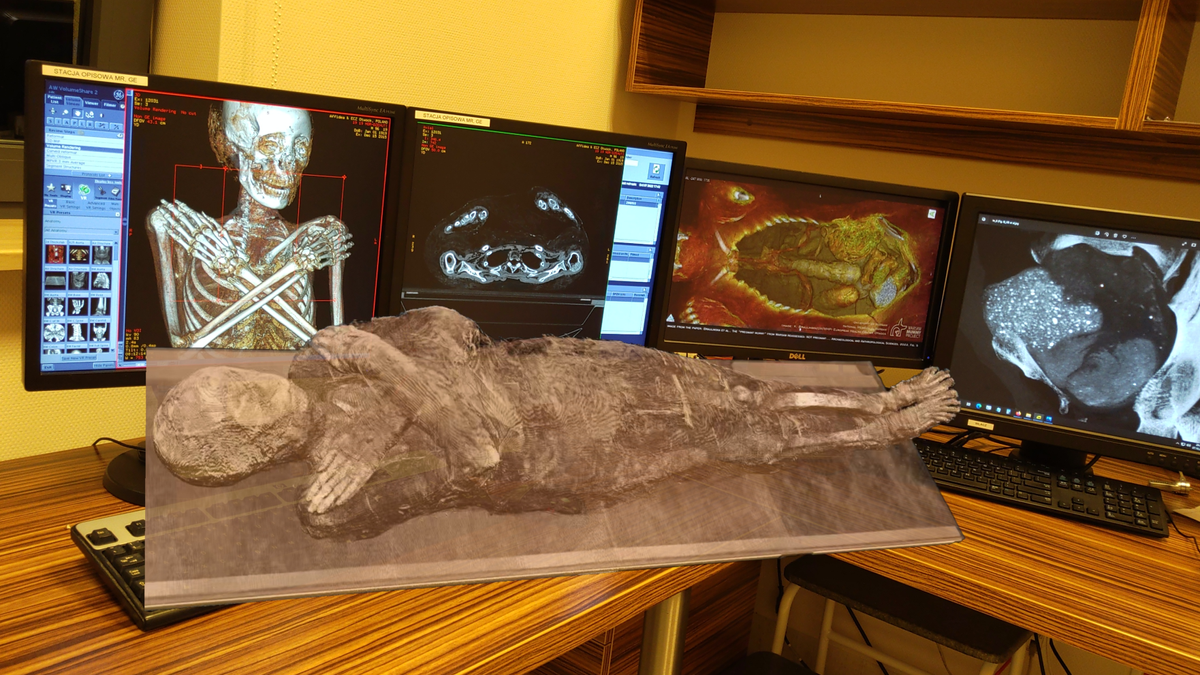'Pregnant' ancient Egyptian mummy with 'cancer' actually wasn't pregnant and didn't have cancer, ...

Unraveling the Mystery of the "Pregnant Mummy": A Case of Embalming, Not Childbirth
The Mysterious Lady and Initial Diagnoses
A first-century-B.C. mummy, nicknamed the "Mysterious Lady," captivated the world with the initial diagnosis of a pregnant woman who succumbed to cancer. Discovered in Luxor and residing at the University of Warsaw since 1826, this mummy became the center of a scientific whirlwind in 2021.
Initial studies using X-rays and CT scans led researchers to believe they had found a woman in her 20s, about seven months pregnant, with a fetus visible within her abdomen. The absence of clear fetal bones was attributed to the theorized "pickling" of the fetus due to an acidic uterine environment. Adding to the intrigue, researchers also suggested the presence of nasopharyngeal cancer.
Debunking the Initial Findings
However, these interpretations sparked controversy amongst experts. Radiologist and mummy expert Sahar Saleem challenged the findings, asserting that the supposed fetus was likely embalming material.
To settle the debate, a team of 14 experts meticulously re-examined over 1,300 CT scan slices of the mummy. Their consensus? No fetus, no cancer.
The "fetus" was identified as part of the embalming process. The "pickling" theory was debunked, as bodily acids cannot dissolve bone, particularly after embalming. The supposed cancer? More likely damage sustained during the brain removal process, common in ancient Egyptian embalming.
A Lesson in Embalming Practices and Future Research
This comprehensive re-analysis definitively concludes that the "Mysterious Lady" was not pregnant and did not suffer from cancer. The case highlights the complexities of interpreting ancient remains and the importance of rigorous scientific scrutiny. While the "pregnant mummy" narrative has captured public attention, the researchers suggest shifting the focus towards broader questions of maternal and pediatric health in ancient Egypt.
"This should resolve once and for all the discussion of the first alleged case of pregnancy identified inside an ancient Egyptian mummy, as well as the dispute about the presence of nasopharyngeal cancer." - Study Authors